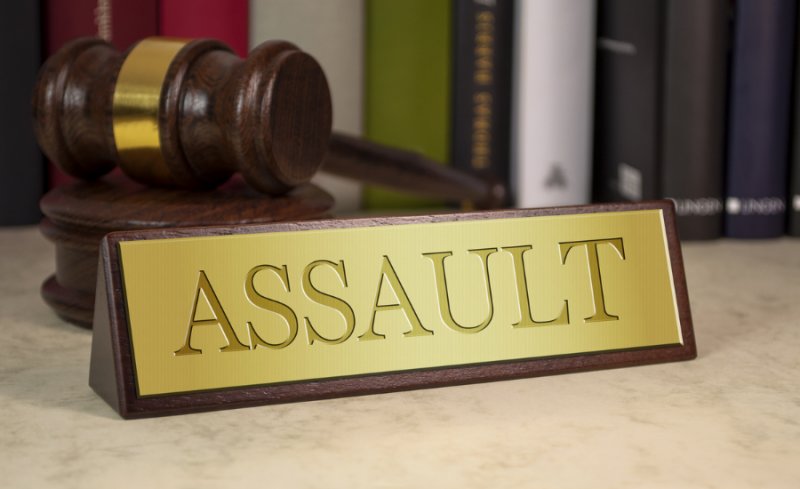Defending the Accused: Navigating the World of Assault Lawyers
Our entire guide on assault law and selecting the correct lawyer. Having the appropriate assault lawyer can make all the difference in emotionally and legally difficult cases. We will discuss assault charges, the responsibilities of an assault lawyer, and how to develop a good defense in this tutorial. If you’re charged with assault or aggravated assault, knowing your rights and choices is vital.
We’ll also help you identify and cooperate with an assault lawyer. We’ll help you through the first consultation, trial, and post-trial proceedings.
In addition, we’ll discuss domestic and self-defense assault instances. Understanding assault legislation might be difficult, but with the appropriate advice, you can confidently traverse it.
To equip you, we’ll provide insights, case studies, and professional guidance throughout this book. This trip isn’t lonely. Join me in this quest for justice.
Understanding Assault Charges
When confronted with a legal issue involving accusations of bodily harm or danger, it is essential to comprehend assault charges. There are various assault charge classifications, each with their own features and potential repercussions.
Typical Assault: Usually, this accusation entails a threat or an effort to injure another person physically. It’s significant to remember that a simple assault accusation may not necessarily require any physical contact.
Extreme Assault: A greater degree of injury or the use of a lethal weapon are involved in this more serious type of attack. It might also involve a scenario in which the victim’s life is seriously at danger.
Attack using a Deadly Weapon: This offense applies when an assault is committed when a weapon that can result in significant injury or death is being used. The offense becomes more serious as a result.
Intent: The accused must be shown to have intended to damage the victim or to have caused a legitimate fear of danger.
Potential for harm: The victim must have had grounds to think that the credible threat of physical harm would materialize.
The victim’s fear: The accused’s actions or statements must have caused the victim to actually feel scared or uneasy.
It’s vital to recognize that these fees vary by jurisdiction and that different laws may have different definitions of certain terms. To understand the local assault laws and create a solid defense specifically suited to your circumstance, it is crucial to seek legal counsel from a qualified assault attorney.
The Role of an Assault Lawyer
When someone are accused of assault, a lawyer is crucial. Their main focus is defending assault suspects. Let’s examine their important duties:
- Legal Know-how:
Lawyers that specialize in assault law are assault lawyers. They are well-versed in relevant statutes, case precedents, and legal techniques for a good defense. Their competence includes grasping the nuances of simple and severe assault accusations.
- Protecting Accused Rights:
Protecting clients’ rights is a top priority for assault lawyers. This includes following due process, collecting and presenting evidence equitably, and treating the accused fairly throughout the judicial proceedings. They diligently protect their clients’ constitutional rights.
- Strong Defense Strategy:
Assault lawyers are strategists. They meticulously evaluate the case, study evidence, interview witnesses, and identify legal defenses. Whether it’s self-defense, lack of intent, or prosecution defects, they try to develop a compelling defense customized to the case.
- Negotiating for Clients:
In many circumstances, an assault lawyer negotiates with the prosecution to help their client. This may involve plea bargains or other agreements that lessen charges or punishment.
- Trial Representation:
In trial, the assault lawyer represents the client. They debate legal points, cross-examine witnesses, and offer facts to persuade the judge or jury. Their capacity to explain and argue for their client can affect the trial outcome.
- Counseling and Supporting:
Besides legal advice, assault lawyers offer emotional assistance and guidance. Legal proceedings can be emotionally demanding, therefore lawyers reassure and empower their clients.
The duty of an assault lawyer is multifaceted. Both legal specialists and champions for their clients’ rights and interests. They try to provide a fair and just legal process to assault defendants and get the best possible resolution for their clients, whether through negotiation or in court.
Finding the Right Assault Lawyer
Finding the correct assault lawyer is essential to navigate the judicial system. Research and referrals usually start this procedure. Trusted friends, relatives, and colleagues with legal representation experience can offer advice. Candidates might also start with online resources, legal directories, and reviews.
Once a list of potential lawyers is formed, examine their experience and competence. This includes reviewing their assault case history, years of experience, and knowledge of local laws and court procedures. A strong assault legal background helps your lawyer handle your case.
Selecting lawyers for consultations and interviews is crucial. This shows their strategy, communication style, and devotion. Ask them about their assault case experience, their comprehension of your circumstances, and their defense strategy throughout these discussions. You can also discuss costs, payment plans, and conflicts of interest.
Finally, the ideal assault lawyer should inspire trust. You should feel comfortable discussing your situation and trust them to represent you well. Take your time choosing a lawyer who meets your needs and goals.
Finding the right assault lawyer requires study, evaluation, and in-person discussions. By taking these procedures, you boost your chances of finding a lawyer who can handle your difficult assault case.
Working with an Assault Lawyer
When choosing an assault lawyer, a good working connection is crucial. The initial consultation and case review are key. This is your chance to describe the occurrence, your perspective, and any evidence. The lawyer will also evaluate your case and propose strategies.
Open and straightforward communication is essential throughout. Your lawyer should update you, give legal advice, and explain complex legal terms and actions. You should also feel comfortable raising issues or questions. A honest and collaborative relationship with your lawyer can strengthen your defense.
Trust is essential in lawyer-client relationships. Your lawyer should be working hard for you and in your best interests. This involves confidentiality and the highest ethical standards in representation.
Your lawyer will create a case-specific defense plan as the legal process progresses. This requires evidence collection, witness interviews, and police report analysis. They will also find legal defenses to improve your case.
Remember that your lawyer is your champion and has essential knowledge. They will help you through the legal system and provide you the finest defense. You and your assault lawyer can work together to win your case by communicating, trusting, and collaborating.
Preparing for Trial
Your assault lawyer and you must carefully prepare and coordinate trial preparation. Your attorney will develop a solid defense during this time. Gather evidence, question witnesses, and analyze the prosecution’s case.
Gathering evidence is essential to trial preparation. Your attorney will actively gather and present defensive evidence. Bring together documents, photos, videos, and other evidence to support your argument. Your lawyer will prepare witnesses for trial’s essential witness testimonies.
Understand the prosecution’s case too. Your attorney will carefully study police records, witness statements, and other prosecution evidence. This helps them to find flaws in your case and make counterarguments.
The courtroom is also prepared. Your attorney will create a trial strategy to defend you. Selecting witnesses, drafting cross-examination questions, and organizing and presenting evidence may be involved.
Before the trial, your lawyer will prepare legal motions and procedures. Motions to suppress evidence, challenge witnesses, or address other legal problems that may affect the trial may be filed.
Your lawyer will advise and assist you till trial. They will discuss trial etiquette and procedures. Prepare for the legal process with confidence and reduce anxiety.
Evidence collecting, case analysis, legal strategy building, and courtroom preparation are all part of assault trial preparation. During this period, your assault lawyer’s knowledge and dedication are crucial to your court defense.
During the Trial
Your assault lawyer advocates for you in court. Your defense, witness cross-examination, and legal arguments will be their responsibility. This crucial phase presents facts and arguments and analyzes both parties by the judge or jury.
Your lawyer will defend you first. Their methodical presentation of evidence, witness statements, and other supporting resources can bolster your case. This is an opportunity for them to reveal the prosecution’s flaws and prove your innocence or reduce charges.
Cross-examination is vital to the trial. Your lawyer will examine the prosecution’s witnesses to find discrepancies, cast doubt on their reliability, and gather evidence for your defense. Effective cross-examination can greatly impact evidence perception.
Throughout the trial, your lawyer can offer legal arguments. They may object to prosecution evidence or testimony if they believe it violates legal procedures. They will also argue your defense’s merits and resolve legal difficulties during the hearings.
Your lawyer’s communication and advocacy skills are crucial throughout this phase. They will advocate for your rights and hear your perspective during the trial.
Remember that difficulties can be emotional and distressing. Your lawyer will teach you courtroom etiquette and behavior to help you feel confident. They will also comfort you and handle any worries during the trial.
Your assault lawyer presents your defense, cross-examines witnesses, makes legal arguments, and advocates for your rights during the trial. Their experience and advocacy are vital to trial outcomes. You may confidently traverse the legal process with their help and expect for a positive outcome.
Post-Trial Proceedings
After an assault trial, your lawyer will take you through post-trial proceedings. If you win, your lawyer will file all documents properly. This may include acquittal or dismissal documentation. They will also advise you on any additional procedures needed to resolve the issue.
If the verdict is unfavorable, your lawyer may suggest appealing. This entails formalising a request for a higher court to review the trial and reverse or amend the verdict. Your lawyer will determine the grounds for an appeal and the chances of success based on your case.
After conviction, your lawyer will help with post-trial applications and proceedings. They may request a lesser sentence or seek other ways to mitigate the conviction. This may involve bargaining with the prosecution or pleading with the judge for leniency.
Your lawyer will also advise you on record-related matters. Explore expungement or record sealing possibilities, which can affect your future opportunities.
Your lawyer’s legal competence is crucial during post-trial processes. They will thoroughly investigate all options and offer the finest advice. Open communication with your lawyer throughout this time helps you make educated decisions regarding your next moves.
Assault cases may result in a variety of legal actions. Whether you’re filing paperwork after a successful defense, considering an appeal, or navigating post-conviction motions and proceedings, your assault lawyer will be vital. This phase requires their experience and cooperation to achieve the best case outcome.
Handling Different Assault Scenarios
Assault lawyers help you navigate the legal complexity of varied assault circumstances. Your domestic lawyer will understand the special characteristics of domestic cases. They’ll defend your rights and address case-specific concerns including restraining orders and child custody.
In self-defense assault cases, your lawyer will carefully examine the circumstances. They will prove you behaved out of fear for your or others’ safety. This involves proving self-defense using evidence and witness testimony. Your lawyer’s ability to explain this defense is vital.
In addition, if the assault is alleged to have occurred during a robbery or burglary, your lawyer will handle the intricacies. A defense plan will handle the assault charge and other criminal allegations. Presentation of evidence that challenges the prosecution’s case and highlights discrepancies or gaps may be required.
All of these situations require your lawyer’s assault law understanding and ability to adjust techniques. They will examine your case, discover legal defenses, and work hard to create a strong defense customized to your specific circumstances.
Your lawyer will need your input to create the best defense strategy, so keep communicating with them. No matter the situation, you and your lawyer can navigate the legal system and achieve the best possible resolution for your case.
Staying Informed: Assault Law Updates
Staying informed about updates in assault law is crucial for both assault lawyers and individuals navigating the legal system. Laws and precedents can change, impacting how assault cases are approached and defended. An assault lawyer must stay current on case studies and legal precedents. This assures their clients receive the most effective and updated defense.
Legislative changes also play a significant role in assault law. New statutes or amendments can alter the legal landscape, potentially affecting how cases are prosecuted or defended. Lawyers need to be aware of these changes to adapt their strategies accordingly. They’ll study the implications of these legal shifts and incorporate them into their defense approaches.
Monitoring trends in assault litigation is another crucial aspect of staying informed. Recognizing patterns or emerging strategies used by prosecutors allows lawyers to better prepare their defense. This might involve anticipating certain arguments or evidence that may be presented and developing counterstrategies.
By keeping abreast of these updates, assault lawyers ensure they are equipped with the most current legal knowledge and strategies. For individuals facing assault charges, having a lawyer who is well-informed about these developments is essential for building a strong defense. It means they can take advantage of the latest legal insights to safeguard their rights and interests effectively. This commitment to staying informed is an integral part of providing the best possible legal representation.
The Emotional Toll: Supporting Clients through the Process
An assault lawyer must recognize the emotional toll legal proceedings, especially assault charges, may take on people. They recognize that criminal charges are upsetting. Thus, they must provide emotional support and counseling in addition to legal expertise.
Client anxiety and uncertainty are typically recognized by assault lawyers. They make clients feel comfortable voicing their issues and fears. This open discussion builds trust and ensures clients are heard and understood. It lets the lawyer customize their approach to the client’s emotional well-being.
Reassurance is another crucial client support step. Legal proceedings can be lengthy and complicated, and clients may feel discouraged. Assault lawyers reassure clients they are not alone. They stress defense skills and devotion to the optimal outcome.
Legal professionals may also recommend clients to emotional support services. This could involve recommending therapists, counselors, or support groups that help people cope with legal proceedings emotionally. This multifaceted strategy provides comprehensive customer support.
Understanding and resolving the emotional toll of legal proceedings is essential for assault lawyers. They seek to give skilled legal representation and comfort and assistance throughout the process. This combined help gives clients confidence and strength to tackle legal issues.
People Also Ask (FAQs)
What is considered assault under the law?
Assault, under the law, is generally defined as the intentional act of causing apprehension of harmful or offensive contact in another person.
How can an assault lawyer help me?
An assault lawyer can help you fight assault charges. They will develop a solid defense, safeguard your rights, and help you through the legal process.
How do I choose the right assault lawyer for my case?
Choosing the right assault lawyer involves thorough research and evaluation. Look for experience in assault cases, consider referrals, and conduct interviews to assess their expertise and compatibility with your case.
What should I expect during a trial for assault charges?
Trials involve both parties presenting facts and arguments. Cross-examinations and witness calls are possible. Your assault lawyer will argue your case.
What are the potential costs associated with hiring an assault lawyer?
Assault lawyers’ fees depend on experience, case complexity, and geography. Fees, payment arrangements, and other costs should be discussed at initial meetings.
What if I believe the assault was an act of self-defense?
If you think the assault was self-defense, tell your lawyer. They’ll evaluate the situation and create a defense around this claim.
Can an assault lawyer help in cases involving domestic situations?
Assault lawyers have domestic case experience. They understand the particular dynamics and legal ramifications of such instances and can represent you.
What options do I have if I’m not satisfied with the outcome of the trial?
If you’re unhappy with the trial result, your lawyer can suggest appealing. They’ll evaluate your appeal and help you through it.
How can I ensure my emotional well-being is taken care of during the legal process?
Your assault lawyer can help you emotionally. They may suggest therapists or support groups to assist you cope with legal emotions.
Is it possible to have my record expunged or sealed after an assault case?
Depending on the outcome of your case, it may be possible to pursue expungement or record sealing. Your lawyer can advise you on the eligibility and process for achieving this.
Stay in touch to get more updates & alerts on Hint! Thank you







